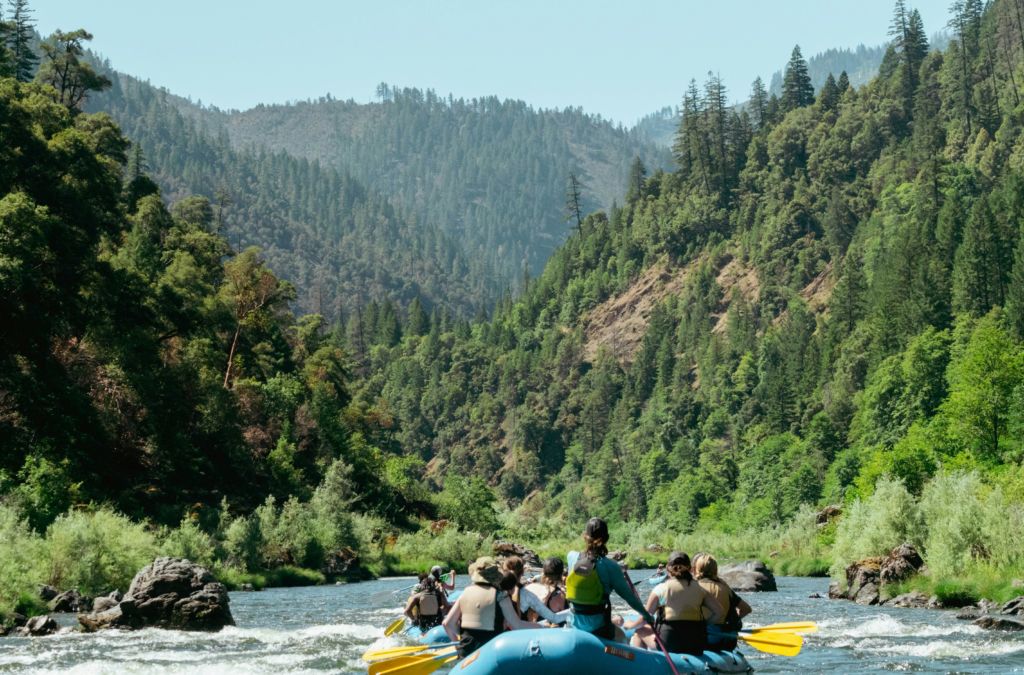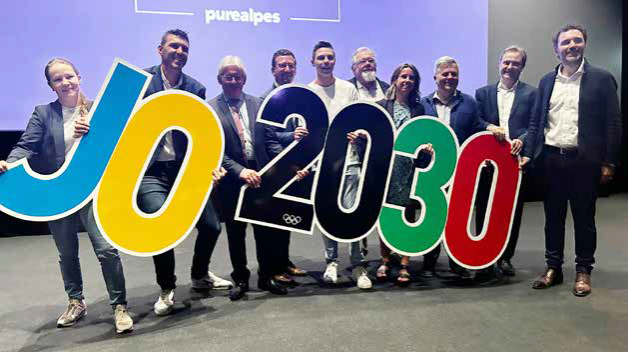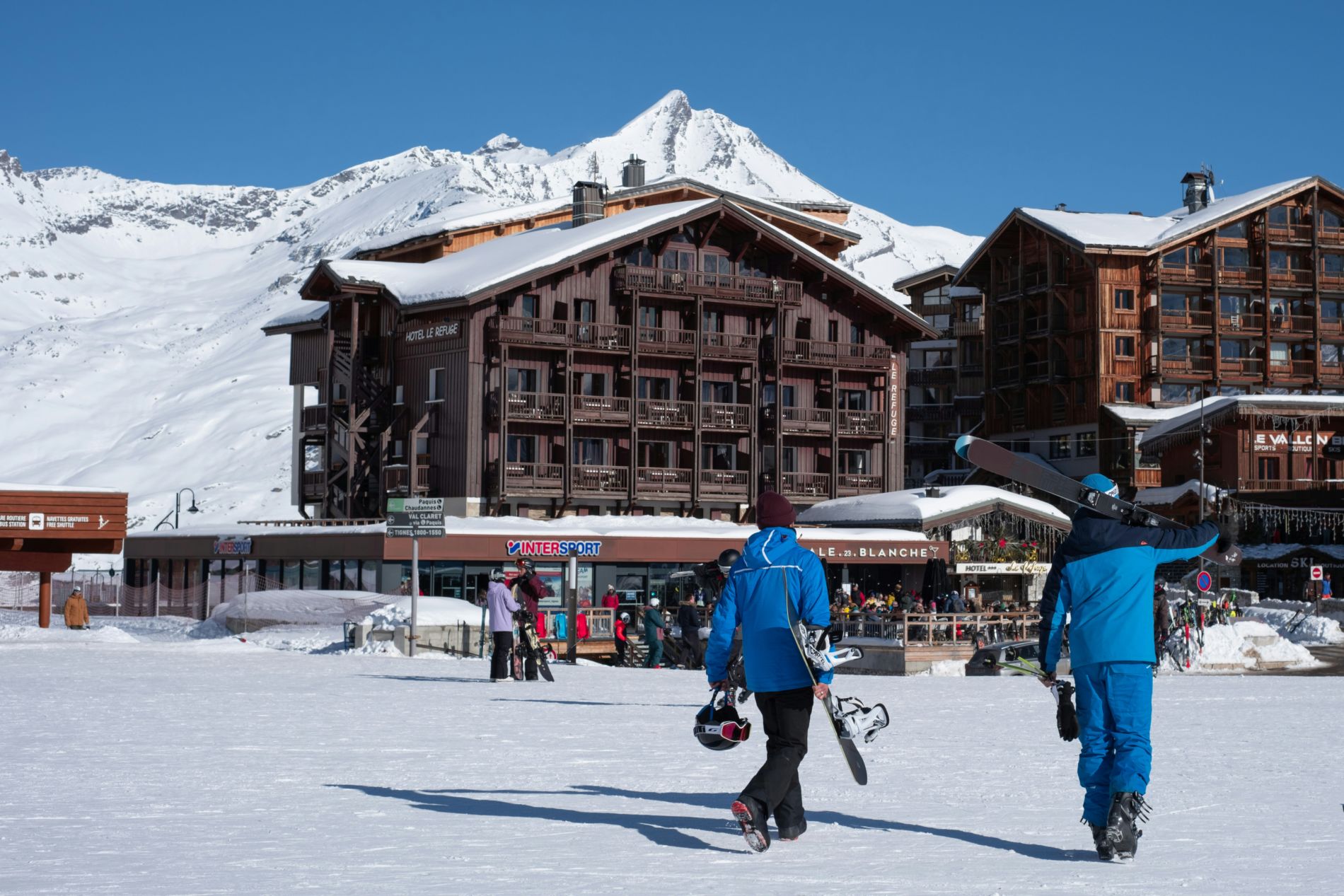Leisure activities in mountain areas are a major contributor to France’s tourism economy. With good progress being made, particularly in Auvergne Rhône Alpes, the challenge of recruitment is a priority for mountain resorts, especially when it comes to seasonal jobs. So what are the strategies for revitalising these areas and making them more attractive to young working people?
Employment in the mountains: current situation and challenges ahead
With 120,000 jobs and an estimated annual turnover of 9 billion euros (source: ANMSM – French National Association of Mayors of Mountain Resorts), the 2024-2025 season ended with very good visitor numbers, as shown by the peak in resorts’ occupancy rate, estimated at 94% for the second week of the Christmas holidays. In addition, the survey carried out in 2023 by Domaines Skiables de France, FO and the CGT shows positive signs in terms of recruitment for mountain tourism businesses. For example, 79% of employees are seasonal workers, and 83% say they are in their job by choice. The average length of service is 10 years, 89% live in the area where they work, and 84% have an occupation between two seasons.
Even with a low unemployment rate, numerous retirements and an increase in the number of jobs on offer, the working population in mountain resorts is nevertheless on the decline. According to INSEE, in the 2nd quarter of 2023, the Northern French Alps – France’s main ski area, with 46% of resorts – were close to full employment (estimated at 4.5% in France). The Mont Blanc employment region even had the lowest unemployment rate in France, at 3.1%. Despite these satisfactory results, mountain areas still need to overcome a number of obstacles to optimise their attractiveness. Geographic isolation and distance from major urban centres tend to deter young people from moving into these mountain communities. In addition, the seasonal nature of employment in tourism businesses, often concentrated in a few months of the year, sometimes makes it hard for people to achieve professional stability. This is particularly true of jobs related to tourism and leisure. One solution is to encourage the development of infrastructure in mountain communities. Major efforts are being made every year to provide better facilities, for example increasing the number of homes, and improving transport services and digital connectivity.
As a partner to mountain sector businesses, the Mountain Planet trade show can help you recruit your future talent by organising Job Dating sessions.
At the next event, which will be held from 21 to 23 April 2026 in Grenoble, Isère, Mountain Planet will also be showcasing training opportunities in the mountains, to attract young people in particular, but also to support professions affected by staff shortages, and to help identify new profiles working in other industries.
The main advantages of mountain areas

@megan-nixon
While mountain areas boast unique advantages that can make them appealing to workers in search of quality of life and career opportunities, they still need to promote them. The exceptional natural surroundings of the mountains don’t just make them ideal for tourism. They provide great access to relaxation and nature, with unrivalled air quality. Tourist areas such as the resorts of the Alps and Auvergne are particularly popular for their remarkable landscapes and sporting activities, including skiing, hiking, climbing, paragliding and canyoning, all of which also attract lovers of outdoor summer activities.
So when you’re lucky enough to live and work in an area like Auvergne Rhône Alpes, there are plenty of opportunities to enjoy it on a daily basis. Every tourist activity plays a central role in the local economy, especially in France’s iconic ski resorts. Cultural heritage and gastronomic specialities also add to the appeal of mountain areas for people who appreciate authenticity and local traditions.
Strategies to attract seasonal workers and young professionals
Promoting career opportunities and highlighting the diversity of the tourism industry and other business sectors in the mountains is how companies will appeal to new talent. Tourism and leisure activities (particularly skiing) are driven by innovative companies and a dynamic tertiary sector focused on residential and tourist services. By building on these specific economic strengths, the mountains can offer much more than just seasonal employment.
To persuade talented people to settle there permanently, tourist resorts are also aware that they need to invest in affordable, modern housing. But they also need to develop high-performance digital infrastructure to enable teleworking in remote areas, and offer rewarding social and cultural activities to help new arrivals integrate into the local community.
Finally, seasonal recruitment in an area dedicated to tourism can easily be optimised by creating a positive experience that includes a personalised welcome for workers as soon as they arrive, creation of co-working spaces, provision of team-building activities connected with sports, and education to encourage skills development and facilitate retraining. For mountain careers are changing and offering opportunities to attract new talent.
Tourism and economic attractiveness in mountain areas depend on their ability to combine quality of life, career opportunities and innovation. By making the most of their natural and cultural assets, while meeting the needs of professionals and seasonal workers – as the Auvergne Rhône Alpes region has done – they will become dynamic centres where people enjoy living and working. Businesses therefore have a key role to play: they must not only adapt their practices, but also work with the local authorities in their region to build a shared, modern vision of mountain tourism.
a lire également
Communication and tourism promotion

22 October 2024
Influencers: Ambassadors for Mountain Destinations
On social media platforms like Instagram, influencers have become the new ambassadors for mountain resorts. With their hundreds of thousands of followers, they attract numerous visitors and raise awareness among ...
Sustainable development

24 September 2025
The Mountains and the 2030 Winter Olympics: a golden opportunity to blaze a sustainable trail for innovation across the communities in the French Alps
The announcement that the 2030 Olympic and Paralympic Winter Games will be held in France has once against thrust the French Alps into the global spotlight. The Games will clearly ...
Accessibility

2 August 2024
Mountain Accessibility: Making Activities Available for Everyone
How can mountain activities be made accessible for persons with reduced mobility and disabilities ? Professionals, municipalities, tourism offices, and industry leaders are collaborating to create an inclusive experience in ...


